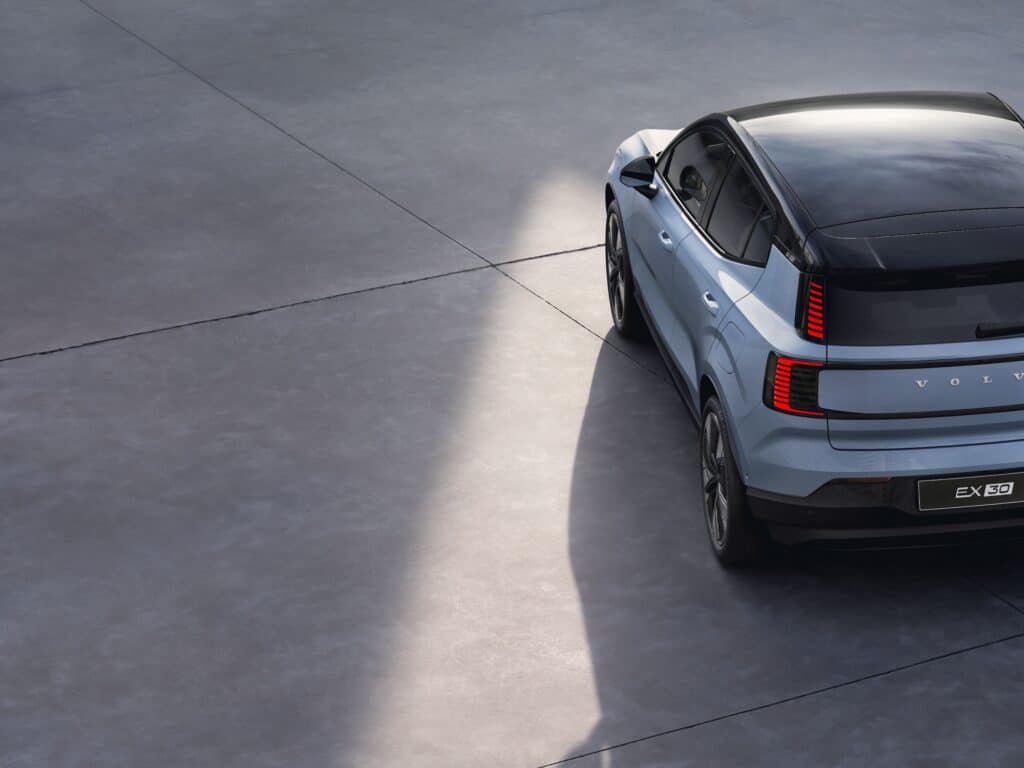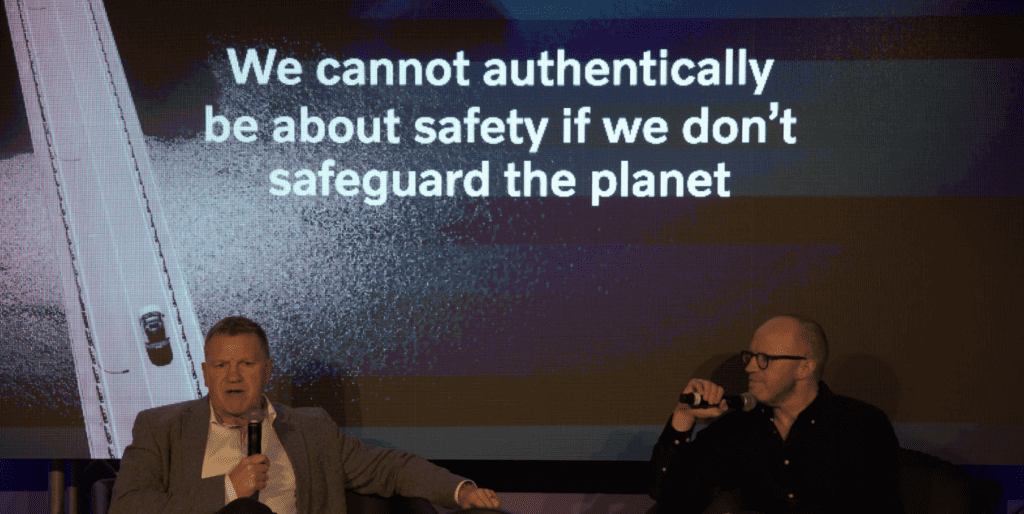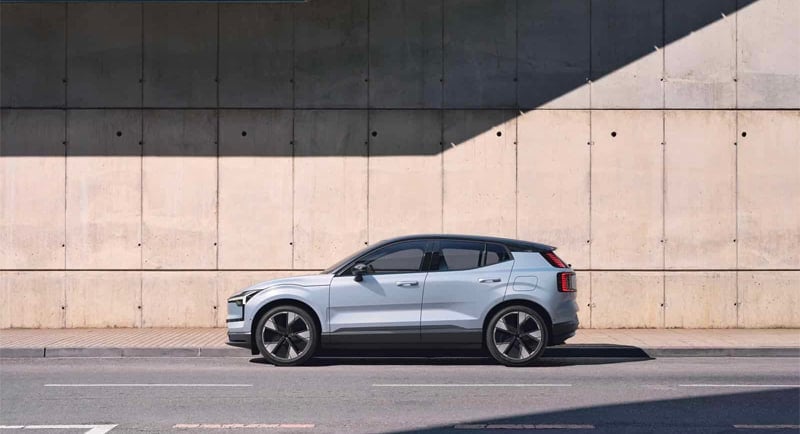Volvo, the iconic Swedish automotive brand, has big ambitions to be carbon neutral by 2040. But, at a time when every brand is talking sustainability and consumers are highly sceptical of greenwashing, can a luxury car marque transform into a sustainable brand?
While the sustainability journey is one every auto brand must make, Volvo Australia’s managing director, Stephen Connor, wants to do it first. Under his watch, Volvo Australia will become an all-electric car company by 2026 – well ahead of the global 2030 target.
This electric dream is just one element of a wide-reaching strategic plan to help Volvo transform into a sustainable mobility company. The five-year strategy was created in partnership with Volvo’s long-term agency, whiteGREY, who also designed the CX plan to drive the change and make it happen.
Globally Volvo will hit its carbon-neutral target, having reduced its carbon footprint with three factories already completely carbon-neutral. However, locally, Connor is pushing to move faster and is leaning into what he believes is Volvo’s most significant brand attribute – authenticity.
“We believe we need to be authentic as a brand,” says Connor. “We have been part of the problem, now we want to be part of the solution.”
“It’s no good nowadays to keep sticking our heads in the sand and keep creating dirty cars, it’s not ok anymore. As a company we genuinely believe we have the ability to make a change and that is what we are doing.”
“The easiest thing to do would have been to wait until 2030, but we saw an opportunity. Consumers today are ready for this change. If you look at the battery electric sales they are going through the roof because people want to feel like they are making a difference.”

The commercial reality of being green
While Connor speaks passionately about the brand’s responsibility to the people and the planet, he also runs an automotive brand with just 2% market share in an incredibly competitive car market.
“There’s also a commercial element to this. It’s not just about being green and sustainable. There are 60-plus manufacturers in Australia and it’s a crowded space. We are a 2% market player, and we are going to get crowded and pushed out in that space [Electric vehicles]. We want to be true to our beliefs, we want to be the first transformers and we want to set the pace in our industry.”
“The cost to our business is huge,” he admits. “The cost of going green or being sustainable is massive, we don’t make as much money on these cars and all these things that come with this. The decision has had a negative impact on our profitability; however, it is the right thing to do for our business and it is the right thing for our consumers.”
This is the crux behind the strategic vision, which whiteGREY chief executive Lee Simpson calls “part competitive advantage, part moral obligation.”
“A future-facing approach can create a long-term competitive advantage,” says Simpson. “Visionary businesses create a sustainable model of the future, advocate for change in the industry and use that to break ranks from competitors, putting slower players with legacy models under pressure.
“But for Volvo, it’s also about doing the right thing. A brand with a heritage in safety has a unique view on sustainability – keeping the world around their cars as safe as the people in them. The decisions that Steve has made locally reflect that view.”

Volvo Australia managing director Stephen Connor and whiteGREY CEO Lee Simpson
The challenges to an electric future
Volvo is currently Australia’s fastest-growing luxury car brand; it wants to be the leading sustainable mobility brand, and that does not come without significant challenges.
The biggest challenge in a country the size of Australia is infrastructure and the politics around this. Connor says the brand is committed to putting infrastructure around the business to support customers, and “the governments will come and get on board”.
Volvo also plans to open a battery recycling plan in the next few years to help create “a circular environment to “become our recycling centre as well as a deliverer of cars”.
It doesn’t end there. Volvo is on a bigger mission to re-engineer the “traditional” automotive industry.
“Creating change is always challenging,” says Simpson. “And change of this type is particularly challenging because it isn’t a solo pursuit. The business is just one element in an interconnected real-world system that includes other businesses, consumers, government, technology, finance and the planet itself.
“Sustainable transformation like this will experience pockets of cultural inertia, behaviour change challenges or even shifting government priorities over time. Appreciating the system helps shape decision-making and to understand where you should direct your efforts.”
Connor believes the entire industry needs a seismic overhaul for a more sustainable, personalised and flexible future. Automotive companies must rethink the talent and hiring models they use to attract software and mechanical technicians to work on cars.
“As humans we need to change the way we think about things. We are very traditional in that we buy a car it sits outside for 95% of the time because we need it just in case. We’ve got to change how we think about the industry. I’m not saying we shouldn’t buy cars. But you might buy an electric car to get you in and out of the city and you might borrow a car to drive to Hunter Valley or wherever.”
Part of Volvo’s ongoing transformation is an ambition to offer membership models and Volvo concierge services, where consumers could hire Volvo cars on platforms similar to Uber. The idea is to move away from a reliance on ownership models and create user models that reward loyalty, which feeds back to the brand and its success.
Simpson says the strategy is focused on empowering people to change their view of ownership.
“The strategy involves transitioning people to EV ownership and empowering EV usership. You can see a future where there is a ‘plugged in’ Volvo fleet managed remotely, ready to share and unlocked through membership.
“Putting it into action involves different revenue models – such as subscription, new partnerships – like ridesharing apps, new technology – such as an app as a key interface and upskilled talent. There is a degree of difficulty in that, but worth doing to invest in the future,” said Simpson.
Connor agrees. “There are 60-plus manufacturers in Australia, and they will all makes great cars – you have to have point of difference. Our point of difference is that we are authentic, we are understated, and we look after our consumers. Why not reward people for that?”
Connor is pragmatic about the level of work and investment required to achieve these goals; however, he believes it’s essential for Volvo and the auto industry to keep trying to transform and evolve.
“There’s a line Volvo uses, when we see the unattainable, we run toward it, that’s what we are trying to do,” says Connor.
—
